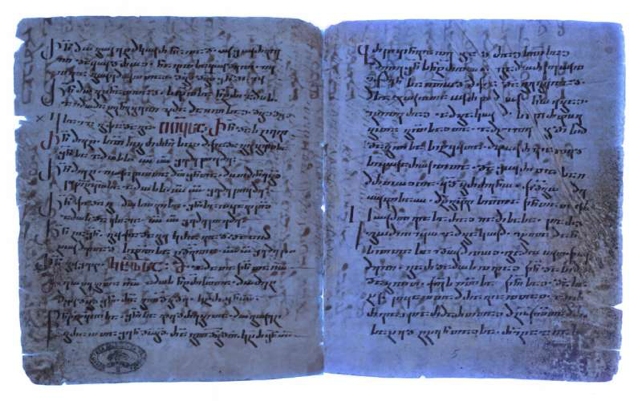Scientists using ultraviolet photography say they have found an old version of a chapter of the Bible that was hidden underneath a different section of text for more than 1,500 years.
Historian Grigory Kessel of the Austrian Academy of Sciences announced the discovery in an article in the journal, New Testament Studies, earlier this year. New Testament Studies is a peer-reviewed academic journal published by Cambridge University Press.
According to Kessel, he used ultraviolet photography to see the earlier text under three layers of words written on a palimpsest, a type of ancient manuscript that people used to write over other words but often left traces of the original writing behind.

Palimpsests were used in ancient times due to the scarcity of parchment. Words would be written on the material repeatedly until several layers covered the hidden words underneath.
The text described in Kessel's discovery is a long unseen version of Chapter 12 in the Book of Matthew that was originally a part of the Old Syriac translations of the Bible some 1,500 years ago, Kessel said in a news release. He said he made the discovery in the manuscript held at the Vatican Library.
The manuscript offers a "unique gateway" for researchers to understand the earliest phases of the Bible's textual evolution, according to the news release, and shows some differences from modern translations of the text.
For instance, according to the release, the original Greek version of Matthew 12:1 – which is the one most commonly used today – says, "At that time Jesus went through the grainfields on the Sabbath; and his disciples became hungry and began to pick the heads of grain and eat".
The newly discovered Syriac translation, however, is slightly different. It says, "began to pick the heads of grain, rub them in their hands, and eat them".
This article was originally published by Business Insider.
More from Business Insider: